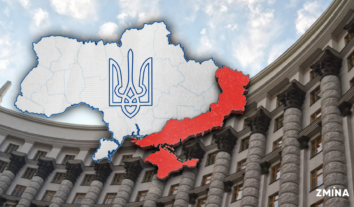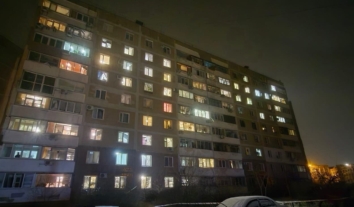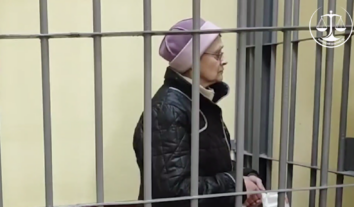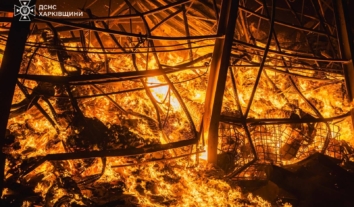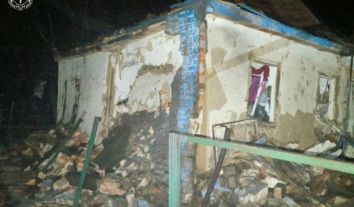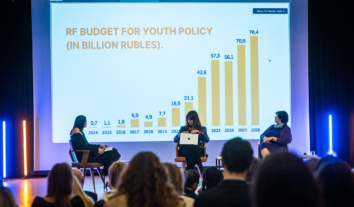Seven most anticipated changes of the judicial reform in 2017
Last year was crucial for the start of the full-scale judicial reform. Amendments were made to the Constitution, new laws “On the Judiciary and the Status of Judges”, “High Council of Justice” and two laws related to the execution of court judgment were adopted. After their enactment High Qualification Commission of Judges of Ukraine announced a competition to the new Supreme Court.
New Supreme Court
According to the law, before the end of March of this year at least 65 judges must be appointed to the new Supreme Court. For the first time academic lawyers and lawyers decided to compete with the judges for the post in the Supreme Court. 653 candidates are participating in the competition of the High Qualification Commission of Judges of Ukraine.
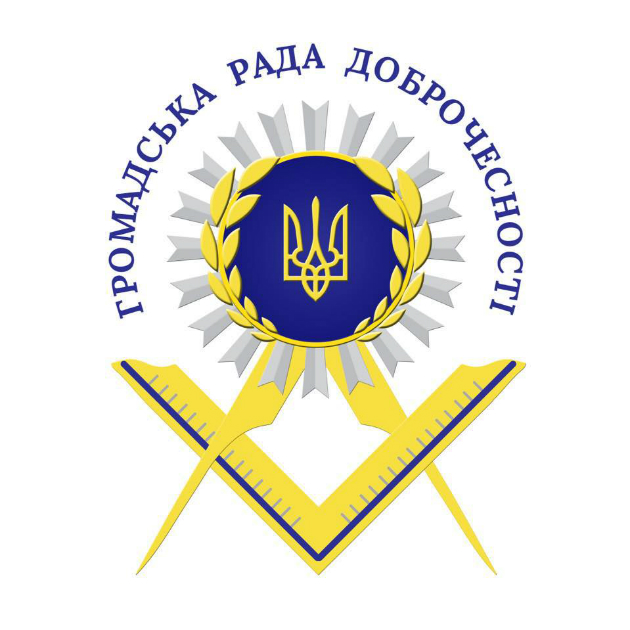 Candidates are also reviewed by the Public Integrity Council, which is formed by was formed by the prestigious non-governmental organizations. In early 2017 conclusions of the Public Integrity Council about the infamy of the candidates became more significant and now to overcome the conclusions candidates need to receive votes of the two thirds of the members of High Qualification Commission (11 of 16).
Candidates are also reviewed by the Public Integrity Council, which is formed by was formed by the prestigious non-governmental organizations. In early 2017 conclusions of the Public Integrity Council about the infamy of the candidates became more significant and now to overcome the conclusions candidates need to receive votes of the two thirds of the members of High Qualification Commission (11 of 16).
There are high expectations about the new Supreme Court. It must not only replace the three higher specialized courts and current Supreme Court, but also set the new high standards of justice for the entire judicial system by enacting the authority of cassation court. It will be possible to receive the final decision on the case sooner, since the court of third instance will be final (to this day we have four instances in the court).
It is important not to neglect the idea of the new Supreme Court, by “giving” it the tens of thousands of cases that have accumulated in the higher courts. This is what this mechanism the law envisages. But the new Supreme Court may not survive under the pressure of the cases.
Therefore, the changes amendments to the law are required and the new Supreme Court should accept only new cassational appeals. Cases of the high specialized courts must be considered by the same specialized courts or, as a out of a necessity, transferred to the courts of appeal.
Qualified Assessment
According to the amendments to the Constitution, all current judges must pass the qualification evaluation to check the competence, righteousness and abidance of ethical standards. Failure of the evaluation is the basis for the dismissal of the judge. Given the large number of current judges, this process will drag on for several years.
It is important in 2017 to evaluate the judges, who were earlier appointed for five years and judges of the appellate courts. It is also possible to start the process of reorganization of courts of appeal and create new courts of appeal, by the way of competition, which will be open for participation not only for judges. It is important to start building the pool of candidates for the position of judges of local courts, since the preliminary pool of reserve, which was created in the days of Yanukovich’s reign, has exhausted itself.
Public Integrity Council will also partake in the procedure of evaluation of judges and candidates. It is essential for the new norm of the Constitution about the obligations of judges to prove its viability in practice. According to the norm, judges must prove the legal origin of their property, for violation of such obligation judges shall be dismissed.
Establishment of the anti-corruption courts
The law “On the Judiciary and the Status of Judges” provided for the creation of Supreme Anti-Corruption Court, but postponed the term of its establishment to the adoption of a separate law. The efficiency of the National Anti-Corruption Bureau and the Specialized Anti-Corruption Prosecutor’s Office can be negated without the adoption of such law and without the launch of anti-corruption courts. Existing courts are simply delaying the investigation of submitted cases, which are related to the high-level corruption, and are “leaking” the information about the searches and covert investigative actions, thus disrupting the operations of exposing the criminals.
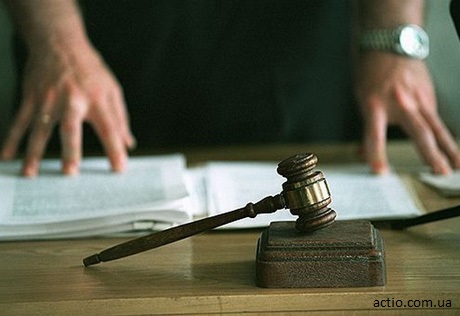 In addition to the Supreme Anti-Corruption Court as the court of first instance, special department in the Supreme Court for the appellate reviews, and perhaps consequently, there will be a need to create several regional anti-corruption courts.
In addition to the Supreme Anti-Corruption Court as the court of first instance, special department in the Supreme Court for the appellate reviews, and perhaps consequently, there will be a need to create several regional anti-corruption courts.
The law should establish a special procedure of selection of judges to these courts where international organizations and the public would have decisive vote, instead of political bodies. Judges of the anti-corruption judges must not only be professionals, but also intolerant to any manifestations of corruption. It is also important to provide additional protection and guarantees of safety of judges and their families.
In the case of adoption of the law in the first half of 2017, there is a chance that the anti-corruption courts will be able to commence theirs operations in 2018. Though there is no sign of political will to adopt a qualitative law. There will probably be attempts by the government to postpone the adoption of this version of the law, in order to find loyal judges. But, obviously, the public will defend the creation of truly independent anti-corruption courts.
Electronic Court
The elements of e-court are already implemented in the judiciary: the online payment of the state fees, obtainment of information about the stages of the case examinations in the court, the ability to receive the messages and copies of decisions from the court by email, SMS informing, access to texts of court decisions through the Unified State Register of Court Decisions, online broadcast of individual court hearings and videoconferences between the courts, as well as with detention centres.
 But it is not enough. Judiciary will be much more accessible if communication with the court will be fully converted to electronic form, for some users it is more convenient than the postal correspondence and a persona trip to the court. Cloud technologies should make it possible to provide for users the access to case files through the Internet. In the case of judicial appeals there won’t be a need to transfer the case files to the higher courts.
But it is not enough. Judiciary will be much more accessible if communication with the court will be fully converted to electronic form, for some users it is more convenient than the postal correspondence and a persona trip to the court. Cloud technologies should make it possible to provide for users the access to case files through the Internet. In the case of judicial appeals there won’t be a need to transfer the case files to the higher courts.
Mechanism of electronic judicial order may also be effective. It will allow to accumulate about 20 percent of all civil and commercial cases from all over Ukraine in one or two courts, which can easily withstand the burden with a simple algorithm: if properly notified debtor has not denied the monetary claims of the plaintiff, then court generates a court order to collect these sums. The experience of functionality of such court has proved its effectiveness in Poland and other countries.
Electronic court will allow to save significant financial and human, as well as provide an opportunity to accelerate the resolution of the case for the parties and reduce the pressure on the courts. Some technical capabilities for e-court are already created, but changes in procedural legislation, which is based on the paper communication and on the direct presence in the court, are required to make them fully operational. There is hope that these changes will be made in this year.
Reconsideration of sentences regarding the arbitrarily convicted
According to the human rights defenders, dozens of people, who were sentenced to life imprisonment, are serving sentences for other people’s crimes. In dozens of cases European Court of Human Rights has found a number of violations of human rights in connection with a conviction on the basis of fabricated evidence and confessions, which were extracted through tortures. Ukrainian courts of all levels have remained deaf to such arguments. But, unfortunately, not all arbitrarily convicted turned to the European Court, due to the absence of a lawyer, or due to the complete despair, or due to other reasons.
In practice, for many years the number of cases of justifying a person in Ukraine has not exceeded one percent of the sentences. Judges and prosecutors were punished for absolutory sentences.
There is no mechanism of reconsideration of sentences, which were concluded a long time ago, regarding such persons in Ukraine. Many of them died before they had a right to reconsider their cases. Unfortunately for now, the law does not provide for such right. However, the parliament adopted a bill on the first reading and this bill gives a chance to reconsider the case. But, last year parliament was unable to consider the bill at the second reading. Somewhere it was hindered by the prosecutor’s and judge’s lobby, somewhere by the doubts about the effectiveness of the reconsideration in the conditions of existing judicial system, which is not ready to admit their mistakes.
But in 2017, it is possible to dispel these doubts, if the process will take place under the new Supreme Court. Therefore, the chances to enact the law are increasing. It is important for the parliament not to lose this chance and give the convicts, who are serving sentences for other people’s crime, the right to restore the justice.
Jury trial
Under the conditions of general distrust towards the government in general and courts in particular, involvement of the public may be an effective tool of restoring the confidence. In legal proceedings there is trial by jury. Today it works only in criminal cases, but in its very nature and in an abbreviated form it is the same court with the participation of people’s assessors as before. There are two judges and three people’s assessors, who decide questions of fact as well as questions of law. While the classical model of jury trial involves the people’s jury, which decides whether the person is guilty based on the evidence of the defense and prosecution sides, and the judge, who on the basis of the jury’s verdict either justifies or condemns the person and imposes a sentence.
Obviously, there is a need to introduce such model of the jury. There is also need to expand the scope of its application, rather than limiting to the cases, in which person faces life imprisonment. Of course this will require an increase of costs that are invested in such courts. And it is impossible to accomplish in the next year. But it is possible to establish the legislative framework for gradual introduction of trial by jury in 2017.
However, it is also possible to establish a trial by jury for solving the commercial disputes. Moreover, it is already mentioned in the law “On the Judiciary and the Status of Judges”. This is slightly different model. In the disputes with a large sum in dispute reputable lawyers will be engaged and these lawyers will be chosen by the parties themselves from the people who were delegated by the business-community. Of course, the parties must bear the expenses of engaging such panel of arbitrators. This model can eradicate the corruption in the commercial courts and create the conditions for the confidence of investor in the Ukrainian justice system. But changes to the procedural law must be made for the implementation of this model.
Establishment of an institution of private court bailiffs
Unfortunately, the bad level of execution of court decisions negatively affects the credibility of the judiciary. The government has a monopoly in this area. This is carried out by the State Executive Service. But there are great opportunities for corruption at the 4.5 thousand state executive officers, who account for the millions of proceedings in the execution each year. State executive officers will not lift a finger without an additional incentive. There always is an excuse of an excessive load for the disciplinary body.
From October 5 of last year, two laws on the enforcement of judicial decisions were enacted. One of them proposed the introduction of an institution of private court bailiffs, alongside with state enforcement officers. Execution of judgment by the private court bailiffs will be carried out on the same rules of procedure as they are carried out by state enforcement officers. Now the creditor has the right to choose between State Executive Service and private court bailiff. In the conditions of competition the quality of execution should increase and the conditions for corruptions should decrease.
It is expected that the first private court bailiffs will begin work in the first quarter of 2017, after passing tendering draft procedure. Of course, we should not expect that the number of private court bailiffs will be sufficient to create a proper competition for the State Executive Service this year. But over time, the share of the State Executive Service shall decrease in this area or disappear altogether.
Whether the judicial reform, which is initiated by the President, will be successful and the justice will be fair and effective will be known this year. There are chances for success. And the chances are sufficiently large. Although the risks are also significant.
Roman Kuybida, Deputy of the Head of the Board of the Centre of Policy and Legal Reform.




